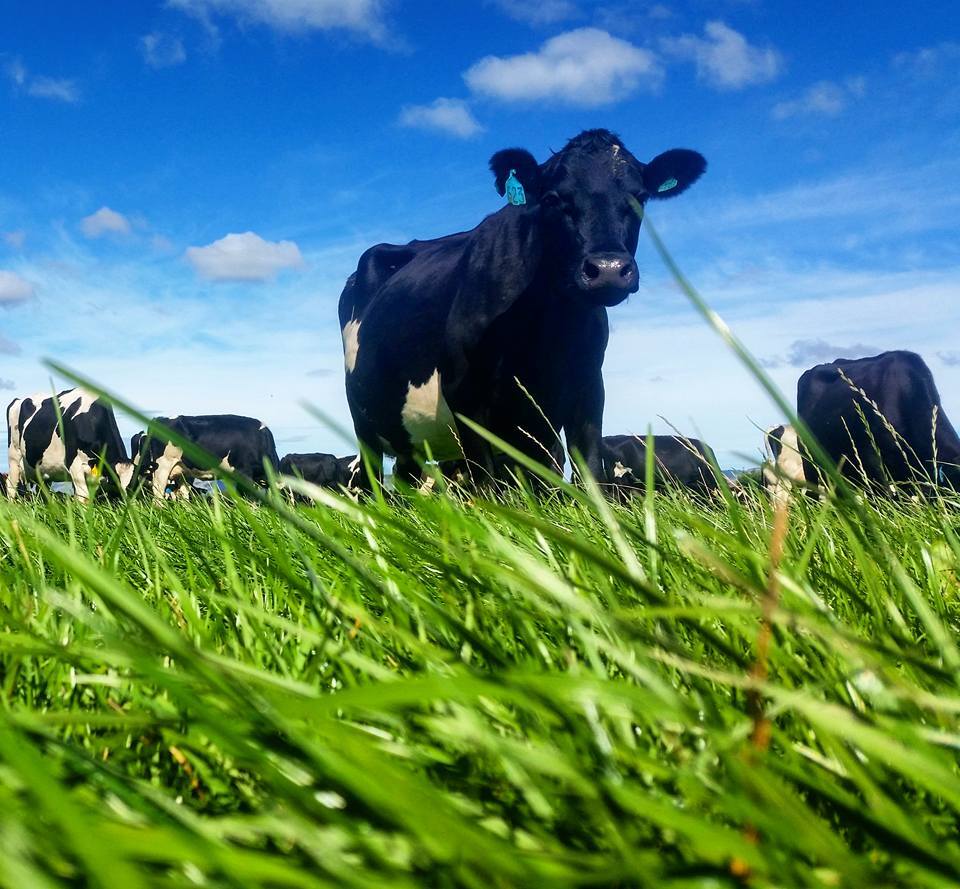This is an independent national platform designed to give New Zealand dairy farmers real choice of herd recording platform providers and better data to breed more efficient sustainable cows.
Over the last few years, the system used by NZ Animal Evaluation Limited (NZAEL) to manage and evaluate herd data has been undergoing an upgrade.
NZAEL has worked closely with the industry, and the ambitious planning is already delivering results, with farmers now seeing real benefits from the changes.
CRV ITIM Manager Andrew Singers explains that DIGAD is a game changer for the industry.
“It will help farmers make even more informed decisions. The changes also mean farmers now have a real choice of herd recording platform and can easily move their data from one platform to another, rather than being locked into one.”
NZAEL General Manager Dr Brian Wickham joined CRV’s Better Herd podcast recently to provide an update on progress and what the changes would mean for farmers.
“NZAEL 2.0 was about upgrading to the latest version of the software we were using to calculate animal evaluations. Since then, we’ve been working on NZAEL 3.0, which involves making the switch to using completely independent software.
“The new system is the leading edge of genetic evaluation systems. It comes from The Helical Company, which is a New Zealand state-of-the-art genetic analytics and genomics software firm.
“The next step, in December 2021, will be to switch to the independent software, as well as looking at the models we use for evaluating some traits. This will be followed in December 2022, assuming we can reach a satisfactory agreement to access genomic data held by breeding companies, with extending our evaluations to include genomic data to help us fast track genetic gains across the industry.”
Changes at NZAEL have also involved transitioning the operation and maintenance of DIGAD (Dairy Industry Good Animal Database) from LIC to NZAEL, a wholly owned subsidiary of DairyNZ.
“Effectively, we’ve moved farmers’ herd data from LIC to NZAEL,” says Dr Wickham. “DIGAD captures all data, irrespective of what herd recording service provider a farmer uses. Data from CRV farmer customers has been flowing directly into the new system since November 2020.
“Our new software, together with farmers’ data now coming directly to NZAEL, means we can move to a truly independent approach to genetic evaluations.”
The DIGAD platform also includes data gathered by New Zealand’s breed societies, including TOP (Traits Other than Production) from progeny test and breeder herds.
About 50,000 dairy cattle are inspected every year in New Zealand for traits covering their type, farmer opinions and conformation. Dr Wickham says including information from progeny test herds and breeders gives the industry a data set to help identify the best animals for breeding the future national herd.
Re-assessing traits
NZAEL will also be changing the models it uses to assess some traits. Dr Wickham believes most New Zealand farmers consider fertility to be one of the most important.
“Historically, the trend hasn't been particularly favourable. Fertility gains are pretty flat when you look at progress over the last few years.
“We are developing a new evaluation model for fertility, which uses more data from second, third and fourth lactations. Currently, it is focused on fertility during the first lactation.
“We need to have evaluations that identify our more fertile animals, which we can then use to select bulls to sire herd replacements.
“The work is well advanced and has been tested against the international Interbull system. The results show that we’re getting better alignment with other countries for these new fertility evaluations.”
Dr Wickham says work is also being done on models for evaluating survival traits and calving traits, including gestation length, and calving difficulty.
“Encouraging farmers to provide us with more data is key to evaluating animals for these traits. There are about a million cows mated to beef bulls and dairy cows in New Zealand, but we receive very little data for these calvings.”
Quality Data
Dr Wickham says NZAEL’s Quality Data project focusses on making sure all the data used in genetic evaluations is of the highest quality and is trustworthy.
“If we don't have good quality data, you don’t get good genetic evaluations, which means farmers can’t make good breeding decisions. So, it's fundamental to the whole industry.”
Mr Singers says CRV supports this approach.
“We designed myHERD to be user-friendly, both online and off line, to ensure farmers could easily update their herd records and capture this critical information. It is also why we wanted myHERD to integrate with other platforms that are also recording data.”
Dr Wickham says that as an industry we are focused on reducing bobby calves and our objective should be to get to a point where every calf has a purpose.
“The more information we can gather, the more effective our breeding decisions will be. If we get our breeding right it is spectacular what it can do, but we must be focused on what is needed for the long-term sustainability of our industry.
“Essentially, we're breeding the cattle now that New Zealand will need in 15 or 20 years.”

